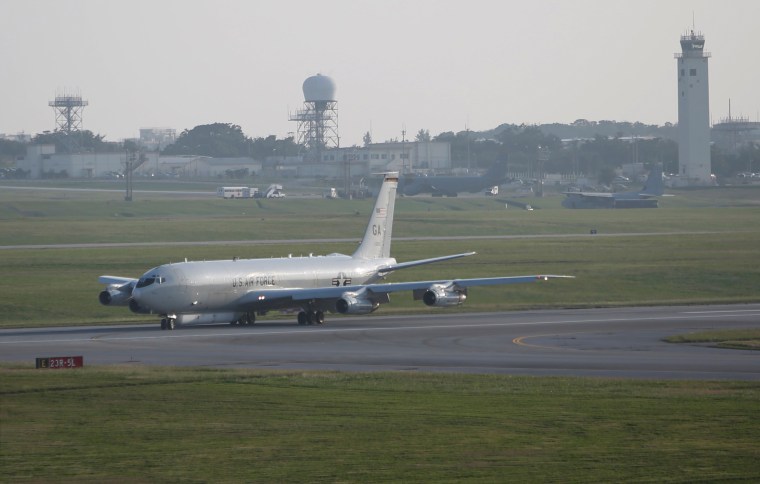World powers were working Thursday to craft a response to North Korea's announcement of a hydrogen bomb test amid efforts to verify the claim.
North Korea said Wednesday that it had successfully tested an H-bomb, setting off alarm bells over the country's nuclear capabilities and waves of condemnation around the world.
Great skepticism has greeted the announcement — the White House said that an initial analysis of the event was "not consistent" with claims of a successful hydrogen bomb test — but it nonetheless set diplomatic channels abuzz.
Neighboring South Korea said it would resume broadcasting anti-Pyongyang propaganda on loudspeakers at the border. The two nations have technically been at war since the 1950s, and previous broadcasts have ratcheted up tensions.
"Our military is maintaining military readiness and will retaliate sternly should there be any North Korean provocation," said Cho Tae Yong, secretary-general of the National Security Council's Secretariat.
About 150 protesters rallied in the South Korean capital of Seoul, condemning the nuclear test and burning an effigy of North Korean leader Kim Jong Un.
President Barack Obama condemned the test in separate calls with his counterparts in South Korea and Japan. Obama agreed with both leaders to "work together to forge a united and strong international response to North Korea’s latest reckless behavior," the White House said.
The United Nations Security Council said it was working on "further significant measures" in response to the test, which it called a "clear violation" of security council resolutions.
Samantha Power, U.S. Ambassador to the U.N., called for "tough, comprehensive and credible" package of new sanctions.
Analysts, though, have warned further economic measures from the West would have little bite. Instead, all eyes are on North Korean ally China to see what if any measures it might take to try reining in Pyongyang.
China's government has issued strong statements condemning the test, and state-owned media published several editorials Thursday criticizing North Korea's move.
"If Pyongyang is determined to develop its economy, it should engage with the outside world, including the West," read an opinion piece in the Global Times. "Nuclear weapons are not the solution to its domestic woes."
Meanwhile, attempts were underway by several nations to determine if a hydrogen explosion had in fact occurred.
Japan has been collecting information but hasn't yet seen solid evidence of radiation material, the country's Deputy Chief Cabinet Secretary Koichi Haiuda said Thursday.
U.S. intelligence-gathering aircraft have been taking off from an American air base in southern Japan, according to The Associated Press. The news agency reported that at least three planes departed from the Kadena Air Base on Okinawa, saying it wasn't immediately clear what the aircraft were doing but that they could be involved in trying to determine what kind of nuclear device North Korea detonated.
